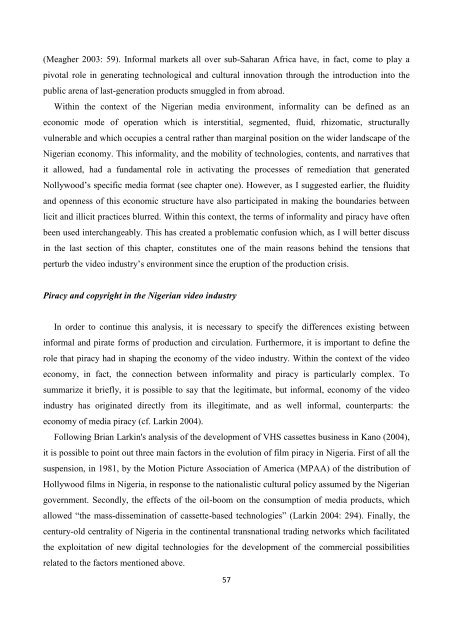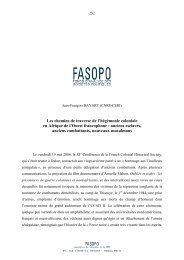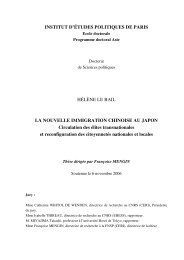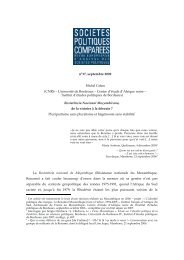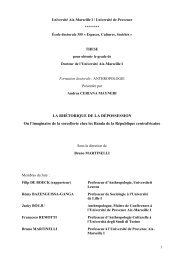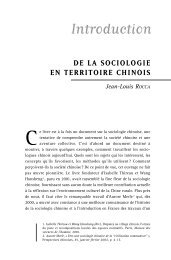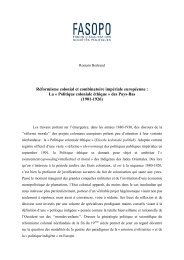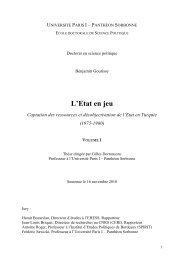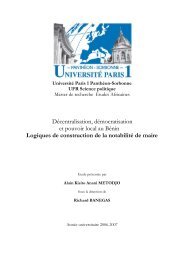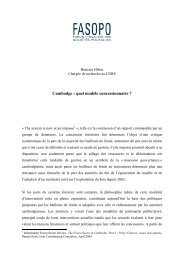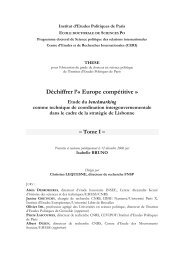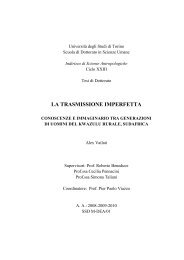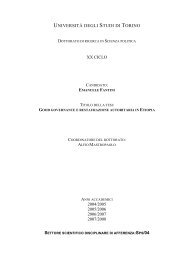Create successful ePaper yourself
Turn your PDF publications into a flip-book with our unique Google optimized e-Paper software.
(Meagher 2003: 59). Informal markets all over sub-Saharan Africa have, in fact, come to play apivotal role in generating technological and cultural innovation through the introduction into thepublic arena of last-generation products smuggled in from abroad.Within the context of the Nigerian media environment, informality can be defined as aneconomic mode of operation which is interstitial, segmented, fluid, rhizomatic, structurallyvulnerable and which occupies a central rather than marginal position on the wider landscape of theNigerian economy. This informality, and the mobility of technologies, contents, and narratives thatit allowed, had a fundamental role in activating the processes of remediation that generatedNollywood’s specific media format (see chapter one). However, as I suggested earlier, the fluidityand openness of this economic structure have also participated in making the boundaries betweenlicit and illicit practices blurred. Within this context, the terms of informality and piracy have oftenbeen used interchangeably. This has created a problematic confusion which, as I will better discussin the last section of this chapter, constitutes one of the main reasons behind the tensions thatperturb the video industry’s environment since the eruption of the production crisis.Piracy and copyright in the Nigerian video industryIn order to continue this analysis, it is necessary to specify the differences existing betweeninformal and pirate forms of production and circulation. Furthermore, it is important to define therole that piracy had in shaping the economy of the video industry. Within the context of the videoeconomy, in fact, the connection between informality and piracy is particularly complex. Tosummarize it briefly, it is possible to say that the legitimate, but informal, economy of the videoindustry has originated directly from its illegitimate, and as well informal, counterparts: theeconomy of media piracy (cf. Larkin 2004).Following Brian Larkin's analysis of the development of VHS cassettes business in Kano (2004),it is possible to point out three main factors in the evolution of film piracy in Nigeria. First of all thesuspension, in 1981, by the Motion Picture Association of America (MPAA) of the distribution ofHollywood films in Nigeria, in response to the nationalistic cultural policy assumed by the Nigeriangovernment. Secondly, the effects of the oil-boom on the consumption of media products, whichallowed “the mass-dissemination of cassette-based technologies” (Larkin 2004: 294). Finally, thecentury-old centrality of Nigeria in the continental transnational trading networks which facilitatedthe exploitation of new digital technologies for the development of the commercial possibilitiesrelated to the factors mentioned above.57


